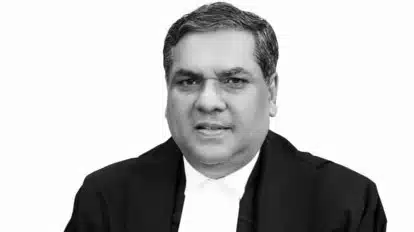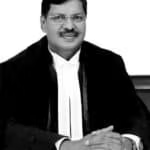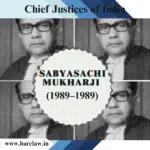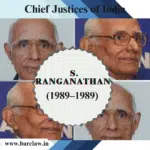
All About Justice Sanjiv Khanna
Justice Sanjiv Khanna, an Icon in the Indian judiciary, will become the 51st Chief Justice of India on 11 November 2024. Justice Khanna is famous for his liberal and socio-legal approach to constitutional justice. He has paid special attention to the need to uphold constitutional rights, wants high transparency in governmental actions and administration, and adheres to the principles of social justice. His legal career, passion, and work speak volumes about the change he brought to the Indian judiciary.
Justice Khanna has come from Delhi’s legal background and legal heritage, which is obvious from his uncle’s tenure as Justice H.R. Khanna, who was famous for dissenting against the state power during an emergency in the ADM Jabalpur case. Two years after starting his practice in 1983, the then advocate and now a Justice of the Supreme Court of India, Justice R.F. Khanna, had established himself in various areas covering taxation laws, arbitration, environmental legislations and constitutional laws. Again, when he was transferred to the Delhi High Court in 2005, he was noticed for his judgments that provided natural justice and fundamental rights primacy, for which he was transferred to the apex court in 2019.
By far, and with the help of his associates, Justice Khanna has delivered or contributed to a series of significant judicial decisions in India’s Supreme Court. One of his most famous pieces was essential in establishing the Right to Privacy as a constitutional right in India. Another historic judgment he worked on was related to Section 377 of the Indian Penal Code, aimed at decriminalising consensual same-sex relationships. It was another progressive victory for the LGBTQ+ community that he believed in full equality for all people regardless of their sexual orientation.
This paper also examines Justice Khanna’s jurisprudence in privacy, governance, and environmental matters. In the Aadhaar case, he himself emphasised the primacy of the need for legislation regarding data protection for the rights of citizens in a growing digital era. His worries about managing state authority with one’s privacy demonstrated his apprehension about the complexities of tech on rights. He has also played a very important role in developing environmental laws that support sustainable development, affirming the doctrines of stewardship as provided under the constitution, and protecting natural resources for future generations.
One of the recent judgments that Justice Khanna delivered is in the Central Vista project case, where he dissented and said that public hearing is important and is not just filled with the formalistic approach in the governmental decision-making process. This position was good enough to show that his door is open for governance to be made transparent and for people to be given a chance to participate. He has also been associated with other special cases, such as being conformed to the SOM that passed the Right to Information Act to the office of the Chief Justice of the judiciary system by endorsing transparency within the judiciary system.
For his part, Justice Khanna, as he has yet to assume the position of the Chief Justice of India but will do so for only a short period before his retirement in May 2025, is likely to concentrate on some areas. He has further maintained a stand to support the independence of the judiciary and called for enhancements of judicial systems to enhance their ability to clear a large number of outstanding cases. His time in the office is also likely to improve access to justice for disadvantaged populations, which is an agenda evident throughout his work: protecting individual persons and fighting for the realization of social justice.
Justice Khanna may well be remembered for his profound faith in constitutionalism, steadfast adhesion to human rights norms, and futuristic vision of the judiciary in India. His judicial philosophy of change through the Constitution reflects a progressive and inclusive view of the law, placing him at the centre of how India’s legal future is set.



